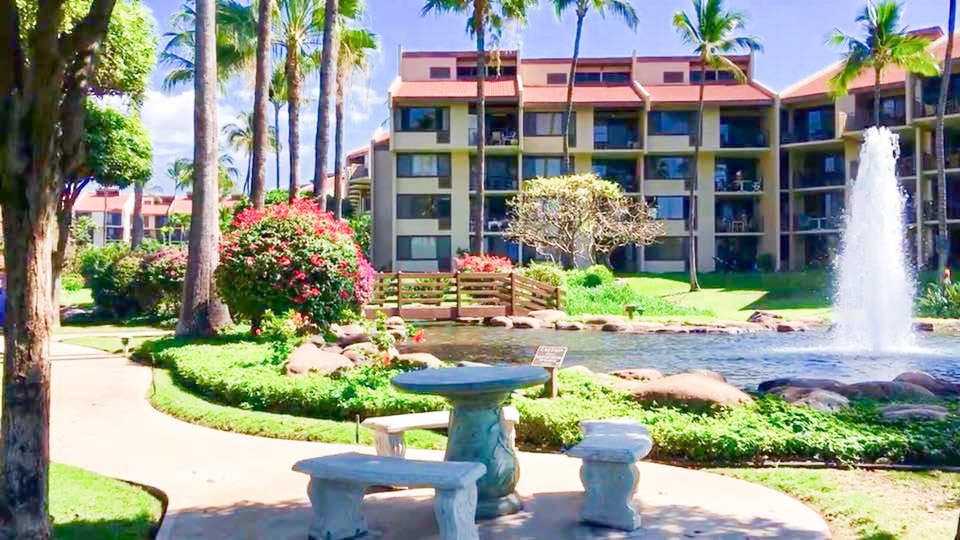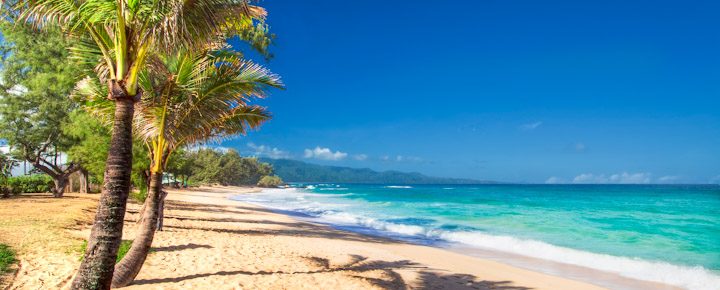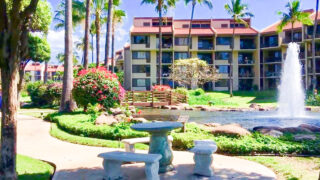The University of Hawaii Economic Research Organization (UHERO), an official research arm based at UH Manoa, just released a thought-provoking blog post suggesting an alternative to the controversial proposal to cull half of the vacation rentals on Maui. As Maui contends with a severe housing crisis exacerbated by last year’s wildfires, Mayor Richard Bissen has proposed a ban on short-term rentals (STRs). This ban aims to convert the approximately 6,172 homes currently used as STRs into long-term housing. However, the plan has sparked unprecedented debate due to its potential economic repercussions.


Economic implications of the Maui vacation rental ban.
The UHERO blog, authored by Justin Tyndall and Emi Kim, acknowledges the previously espoused potential benefits of an STR ban, noting that it could increase Maui’s residential housing supply by up to 13%. However, they also continue to highlight the significant risks associated with such a move. A ban could reduce tourist numbers, leading to job losses and decreased revenue from transient accommodation tax (TAT), general excise tax (GET), income taxes from tourism jobs, and property taxes.
Increasing Maui’s property tax rate on short-term rentals could lead to higher rates.
This measure could result in higher rates for vacation rentals through multiple means. Remaining vacation rentals could increase their rates to cover the higher taxes and capitalize on less inventory, thus impacting affordability for visitors. The economic implications are significant, potentially making STRs less competitive compared to traditional hotel accommodations.
Latest proposed alternative: higher taxes on Maui vacation rentals.
To balance the need for housing with the economic imperatives of tourism, UHERO suggests an alternative approach: increasing property taxes on vacation rentals. Maui already imposes up to four times higher property taxes on vacation rentals compared to long-term rentals (1.25-1.5% vs. 0.3-0.8%).
UH believes that further increases in the property tax rate could push the least profitable vacation rentals out of the market, freeing up housing on those units without completely gutting the Maui vacation rental market. The most profitable rentals would remain and continue to generate county tax revenue, which could be also allocated towards affordable housing initiatives, infrastructure, or other public projects.
Comparisons and insights are drawn from other destinations’ rentals.
The concept of using higher taxes to address housing shortages isn’t new. As pointed out by UHERO, other places, including Vancouver (British Columbia) and areas in France, have successfully reduced the number of vacant housing units through higher property taxes while simultaneously generating additional revenue. The article suggests that increasing Maui’s property tax rate on STRs could provide similar results and offer a healing middle ground between the status quo and an outright ban.
Fine-tuning future Maui vacation rental policies.
UHERO emphasizes the importance of fine-tuning the policy to balance housing availability, county revenue, and tourism needs. While the precise effects of a tax hike are unpredictable, comparisons with other jurisdictions provide valuable insights. For example, Maui’s current tax rate on vacation rentals is considered relatively low compared to property tax rates in thirteen other U.S. states and significantly lower than commercial property tax rates.
Potential challenges and considerations.
UHERO also cautions that not every housing unit removed from the STR market will necessarily become long-term residential housing. Some properties may, of course, as many of you have suggested in comments, remain as vacation homes or empty investment properties. Therefore, UHERO suggests that Maui County should consider implementing a property tax hike on these as well to ensure the desired goals are met.
Reader reactions and broader implications for Hawaii travel.
The debate over vacation rentals has been heated, with many of our readers expressing strong opinions. Numerous comments highlight the negative impacts of STRs on local communities, while others point out that many of these rentals were purpose-built at a time when there was no vacation rental designation for such properties. The feedback underscores the complexity of the issue and the need for a balanced approach that considers both housing needs and economic impacts. UHERO believes it has achieved such an approach.
What are your thoughts on this latest plan for Maui vacation rentals?
- As Maui continues to navigate its long-term, recently exacerbated housing crisis, the UHERO proposal offers an interesting alternative to an outright ban on STRs.
- By increasing property taxes on STRs, the county could mitigate some of the housing shortages while still benefiting from tourism-related revenues.
- This balanced approach could serve as a model for other regions facing similar challenges, ensuring that the short-term rental market better serves residents’ needs while supporting economic stability.
- Will this drive up the already high costs associated with Maui vacation rentals, and is that of concern?
Get Breaking Hawaii Travel News







There are still a lot of unanswered questions here. Looking at the Maui list of supposed STRs, I saw that certain Timeshares were also on that list. People paid a substantial sum to ‘purchase’ a timeshare in those properties. They Own a piece of that timeshare, and each year they pay substantial maintenance fees towards its use, as well as property taxes for their share of the property. How can the county expropriate those properties, or at the least tax the timeshare owners excessively to the point they are forced to give them up???? That’s like pulling an ’eminent domain’ trick to force people out of the State, with no compensation! Welcome to the ‘new Aloha’!
Katf, I hope that you are right!
If you can stomach it, you may want to stick around to watch nativist heads roll on the County Council. But if you’ve had enough, I get it. The government encouraged this small minority to turn Maui vibes ugly.
It’s hard to understand why STR’s are being singled out for some sort of punishment. If new or greater taxes are going to be applied as some sort of punishment for running a vacation rental then it should be applied to all vacation accommodations. STR’s, in my lengthy experience, attract guests that have been coming to Maui for a long time and they generally support local small business’ like Times Market, Foodland and frequent locally owned restaurants like Dolly’s, Joey’s Kitchen, Mala and Aloha Mixed Plate. That is the reality and it’s obvious the Governor, Mayor and other elected officials don’t want “rock the boat” with Hyatt, Marriott, Sheraton and other mainland based “deep pocket” hotel chains operating on Maui and funding their campaigns to get re-elected.
My, My, Grandchildren are great,and really intelligent these days. Several of mine figured a response very similar, with, again, similar drawbacks. The eldest of them being 14, the youngest being 6! The answer from UHERO was one of a few that was apparent from the beginning. My favorite was uttered by the Mayor which equates to, “Damn the torpedoes, full speed ahead” first uttered in 1864 by Farragut! Of course that approach would have Bankrupt Maui sooner than the other. I would have expected better results from UHERO!
Is it just me or does it sound like conditions are ripening for a taxpayer revolt?
We will be selling our Maui condo. The extremist nativist movement, and the destruction of Aloha has made Hawaii a place we no longer feel in our hearts.
Decades ago, we purchased our little vacation getaway. It was barely affordable for our middle class family, and of course we had to rent it out when we weren’t there to help pay for it. It was a dream place for our family and extended family to gather and make memories.
Our sale will not add to available housing. By my calculation, the monthly cost of a 6% mortgage, hoa, taxes, insurance, and utilities will cost about $9,200 a month. It will undoubtedly be purchased by a wealthy “outsider” who doesn’t have to rent it out. We see that already with some of our neighbors. The places just stay empty most of the year. Fewer visitors mean fewer jobs. More of Maui’s wonderful people will be leaving the islands to find work. It’s sad to see the result of bad leadership and extremism, but we won’t have to watch any more.
Might be right behind you. 🙂
Well the tax assessor has already raised assessed values beyond the current market value. Our unit is assessed at $1,150,000. Currently it might sell for $750-850,000. So hopefully they will adjust it next year closer to actual value, but the assessor raised the over $300,000 in one year!
The Planning Dept is a viper’s nest of political appointees and their minions. They did the same thing to my STR; they leave my owner-occupied property alone. They target STR’s with these assessment increases, and apparently you have to pay $250 to request a hearing to challenge the assessment. Next year, if they don’t lower the assessments to match the housing market they cratered, there may be a class action suit.
We were on Maui 6 months before the fire. We celebrated our union there. It wasn’t our first time, yet we love the beauty and the serenity. Both of looked on , in horror, of the devastation. Most of us on the mainland se Hawaii as a getaway. We couldn’t afford a month there and love where we are from. The fires that happen here are just as devastating. Homeowners and businesses use their catastrophic insurance to rebuild. Why isn’t the power company stepping up to replace the living units and businesses destroyed instead of unilaterally trying to place the burden on the short term rental owners. It seems draconian.
Yes, let’s tax the rich for the benefit of the poor! Not! We wouldn’t even need a solution if the Maui Government had been responsible and put the excessive taxes they already charge back into the community to build affordable housing. Wake up Hawaii residents, your elected officials have failed you. They line their pockets and then expect responsible land owners to fix the problem.
Something does need to change. Go after those who owner several rentals no the mom and pa that have just one and rents when they are not there. We pay the high property taxes already. They tripled just a couple years ago. We keep giving and giving. Use the taxes we do pay for property and when we rent. Let’s all work together and help not hurt each other.